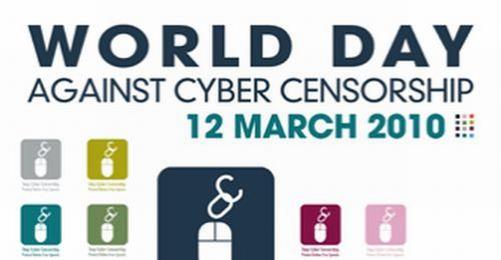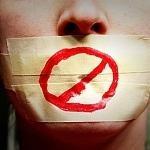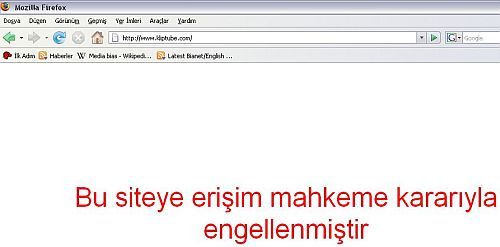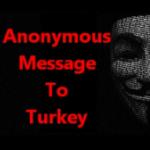The international organization Reporters Without Borders (RSF) has recently added Turkey and Russia to their "under surveillance" list regarding internet censorship. This was announced in a joint press release of RSF Secretary General Jean-François Julliard and Lucie Morillon, head of the New Media Desk.
"In Turkey, taboo topics mainly deal with Ataturk, the army, issues concerning minorities (notably Kurds and Armenians) and the dignity of the Nation", RSF indicates.
Ban of YouTube and probable judicial reprisals
The organization warns other countries, such as the United Arab Emirates, Belarus and Thailand, "which are also maintaining their "under surveillance" status, but will need to make more progress to avoid getting transferred into the next "Enemies of the Internet" list".
RSF emphasized that "the fight for free access to information is being played out to an ever greater extent on the Internet. In Turkey, several thousand sites have been blocked, thereby triggering a great deal of protest. Bloggers and netizens who express themselves freely on such topics may well face judicial reprisals".
Enemies of the Internet
RSF describes the internet in Russia as the "freest space for sharing information", "aside from the control exercised by the Kremlin on most of its media outlets". However, RSF draws attention to existing constraints: "Yet its independence is being jeopardized by blogger arrests and prosecutions, as well as by blockings of so-called "extremist" websites. The regime's propaganda is increasingly omnipresent on the Web. There is a real risk that the Internet will be transformed into a tool for political control".
The following countries are listed as "Enemies of the Internet": Saudi Arabia, Burma, China, North Korea, Cuba, Egypt, Iran, Uzbekistan, Syria, Tunisia, Turkmenistan, and Vietnam.
Assessment of Turkey
According to the European Security and Cooperation Organization (OSCE), Turkey banned access to about 3,700 internet sites mostly for "arbitrary and political reasons". The majority of these sites are of foreign origin, deal with the Kurdish question or aim at homosexual communities.
There is no doubt that the most well known incident in the media is the global video sharing site YouTube. The site has been banned since May 2008 because of videos that allegedly affronted the remembrance of Mustafa Kemal Atatürk, founder of the modern Turkish nation, and clips that were supposed to constitute an attack of the Turkish nation.
Between March 2007 and June 2008, different courts took a total of 47 decisions related to the access ban of YouTube. The Internet Technology Association (İNETD) applied to the European Court of Human Rights (ECHR) on the grounds of violating the right to freedom of expression. MySpace.com was blocked for the duration of one month in September 2009 by reason of "violating copyrights".
The report furthermore mentions the access bans imposed on Günlük newspaper and istanbul.indymedia.org, trials against Barış Yarkadaş from Gerçek Gündem and Ali Barış Kurt and Mehmet Kökçüoğlu from the Güneşin Çocukları ('Children of the sun') website and the punishments handed down to Hacı Boğatekin from gerger.fırat.net and Cumali Badur from Gergerim.com.
Additionally, the report addresses the issue of gazetevatan.com website publishing director Ayiln Duruoğlu and Devrimci Hareket magazine employee Mehmet Yeşiltepe, who were detained for ten months and touches on the hacking of the website of Armenian Agos newspaper by a self-declared admirer of the murderer of Turkish-Armenian journalist Hrant Dink. (EÖ/VK)




















